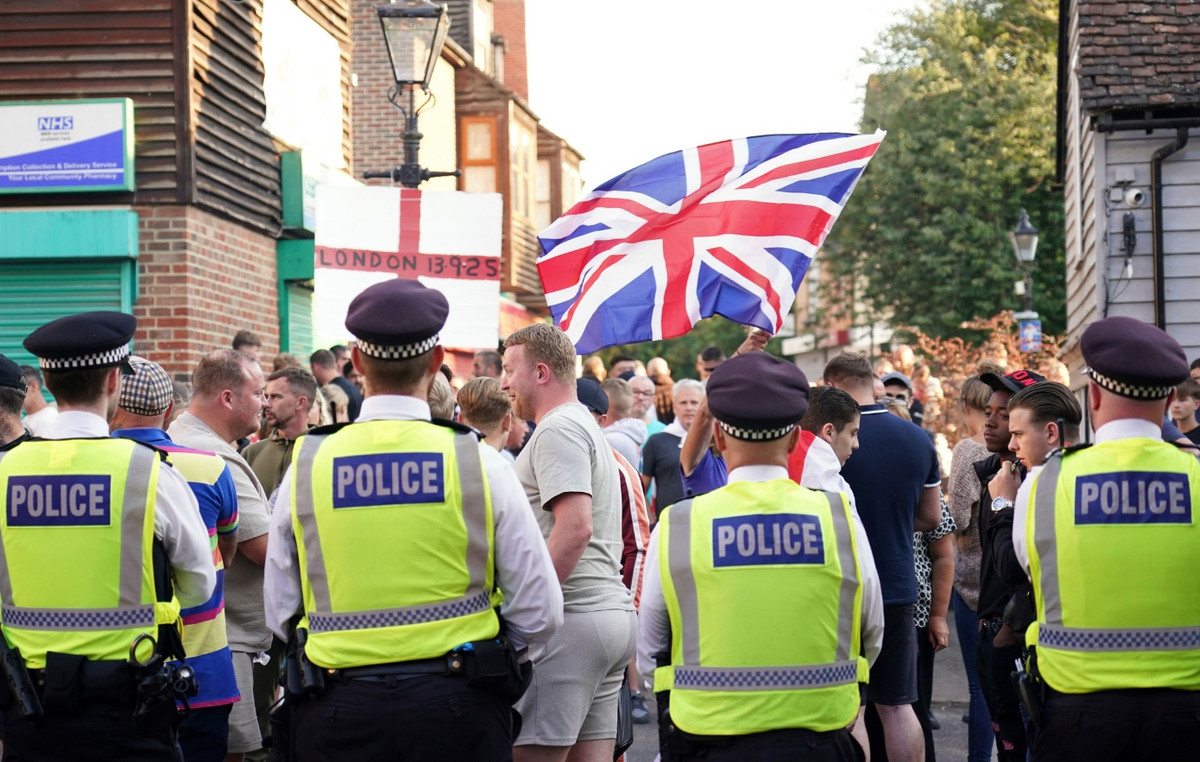The National Council of Justice (CNJ) decided this Tuesday (14), unanimously, to punish judge Rudson Marcos with a warning sentence for his conduct during the hearing that took the testimony of influencer Mariana Ferrer in a rape case.
For the counselors, there was a violation by the magistrate of the Court of Justice of Santa Catarina (TJ-SC) in fulfilling his functional duties. At the hearing, Ferrer was embarrassed and attacked by the defendant’s defense lawyer in the case.
The warning penalty is the mildest of the administrative sanctions for judges. It is a reprimand applied when there is negligence in carrying out the duties of the position.
The CNJ had opened an Administrative Disciplinary Process (PAD) to investigate the judge’s conduct and whether there was “passivity or lack of assertiveness in the face of the outrages” directed at Ferrer.
Three councilors voted to dismiss the PAD as unfounded, and were defeated. In the debate on the penalty, there was unanimity on the warning sanction.
Understand
The hearing conducted by judge Rudson Marcos was held in 2020 via videoconference. The case was revealed by the website The Intercept Brasil.
The influencer accused businessman André de Camargo Aranha of raping her in December 2018, when she was 21 years old. He was acquitted in two instances. The influencer appealed to the STJ and STF.
In one of the hearings of the case, in the first instance, the defense lawyer, Cláudio Gastão da Rosa Filho, showed what he called “gynecological” photos of Mariana and stated that he would “never have a daughter” of her “level”.
After Ferrer cried with her lines, Rosa Filho addressed her saying that “there’s no point in coming with your disguised, fake crying and all that crocodile talk”.
“Your Excellency, I am begging for respect, not even the accused are treated the way I am being treated. For the love of God, guys, what is this?”, said the young woman.
On one of the occasions, the judge in the case, Rudson Marcos, asked the lawyer to maintain a “good level”.
Wishes
The case’s rapporteur was counselor Salise Sanchotene. She voted for the origin of the PAD and for the warning penalty. For her, the situation is “serious” because it reveals the “mistaken understanding of the true role of the magistrate in presiding over a hearing related to crimes against sexual dignity”.
Sanchotente said that there was different treatment from the judge towards the victim and the defendant’s lawyer.
“I have been a criminal magistrate for 30 years and, if I were in a hearing like this, at the next hearing I would start warning the lawyer,” he stated. “That’s what a criminal magistrate is supposed to do when conducting a hearing, but that’s not what happened.”
“The majority of interventions directed at the defendant’s lawyer were aimed at asking objective questions and not regarding the content of the questions or the way in which he should provide adequate treatment to the victim. The magistrate did not shy away from reprimanding the victim when necessary, with few interventions directed at her to effectively provide shelter.”
The counselor voted to recognize the judge’s functional misconduct, “notably due to the failure to stop unreasonable questions, directed at the victim of the process, which in addition to violating his dignity as a subject of rights, materializes differentiated treatment between the parties”.
Councilor Richard Pae Kim was the first to dissent. He said that the magistrate acted regularly to maintain order in the hearing. He was joined by Jane Granzoto, Giovanni Olsson.
“It is not true that the magistrate was omitted or hesitated in properly fulfilling his functional duty”, he stated. “We can note that the judge carried out several interventions to guarantee the normality of the work, punctually and at times when he deemed it extremely necessary.”
“In this specific case, our colleague, my colleague, at least, complied with the law. Should the judge have shouted at the hearing? Maybe he was being sued here because he yelled at the lawyer to stop doing this or that act. Should he have suspended the hearing ten, twenty, thirty times, after each intervention by the lawyer?”, he asked.
For the counselor, the judge should not be solely responsible for what happens at a hearing. “Each person has their own responsibilities, the lawyer, prosecutor, judge, each person has to answer for what happens at the hearing,” he declared.
Defense
Judge Rudson’s lawyer, Rodrigo Collaço, said that the proposed sentence is “injustice” and “unnecessary”. He also defended the judge’s career, saying he was a “prob, honest, well-regarded” judge.
Collaço argued that the case should not be analyzed by the CNJ, as the judge’s conduct was judicialized – that is, it would fall outside the administrative competence of the council, since its content would be analyzed by the Court.
“Those interested in the criminal sphere [Ferrer]invoked nullity of the hearing due to the omission of the represented [o juiz]. The decision taken here could have repercussions on the criminal proceedings”, declared the lawyer. “We have the hypothesis of judicialization that prevents the Council from speaking out, we have the concrete fact, the victim of the criminal process appealed to the STJ and STF so that the magistrate’s conduct could be evaluated and it could be established whether he acted to the point of canceling the hearing or no”.
Collaço also said that the case analyzed by the CNJ represents a type of “embryo” of the risks that the judiciary will face.
“This process was initiated based on fake news, a montage”, he stated. “The request to open an investigation is based on a montage of the hearing, information that the judge acquitted the defendant for culpable rape and there is also a cartoon in which the judge hugs the prosecutor with a pocket full of money. This lie formed the national consensus against this judge, who was threatened with death, and that his children had to leave school.”
Repercussion
With the repercussion of the hearing case, Congress approved, in 2021, the “Mariana Ferrer Law”, which establishes punishment for acts that violate the dignity of victims and witnesses during trials.
The rule provides that everyone involved in the trial must ensure the physical and psychological integrity of victims of sexual violence and witnesses in the process. It is up to the judge to certify the execution.
Statements about circumstances or elements unrelated to the facts being judged, and the use of language, information or materials that offend the dignity of the victim or witnesses, are still prohibited.
If the determination is not complied with, those involved will be held liable in civil, criminal and administrative areas. Thus, repressing “secondary victimization”, with psychological violence during the investigation and trial procedure.
See also – Ministry of Justice creates new rules for visitors and promises transparency
Source: CNN Brasil
I’m James Harper, a highly experienced and accomplished news writer for World Stock Market. I have been writing in the Politics section of the website for over five years, providing readers with up-to-date and insightful information about current events in politics. My work is widely read and respected by many industry professionals as well as laymen.







